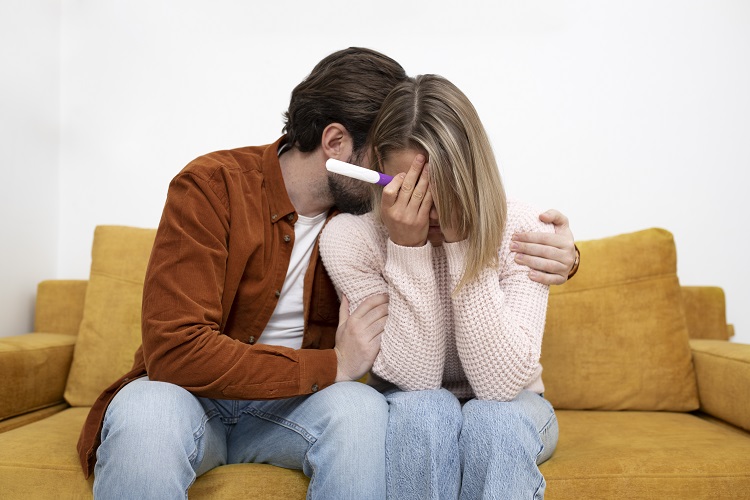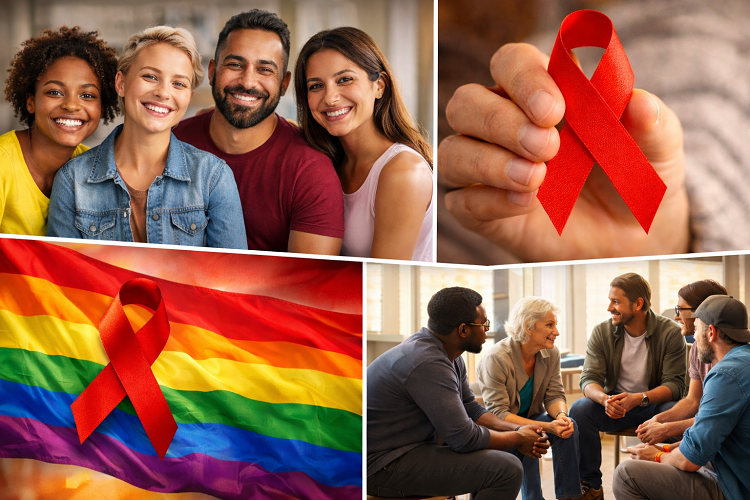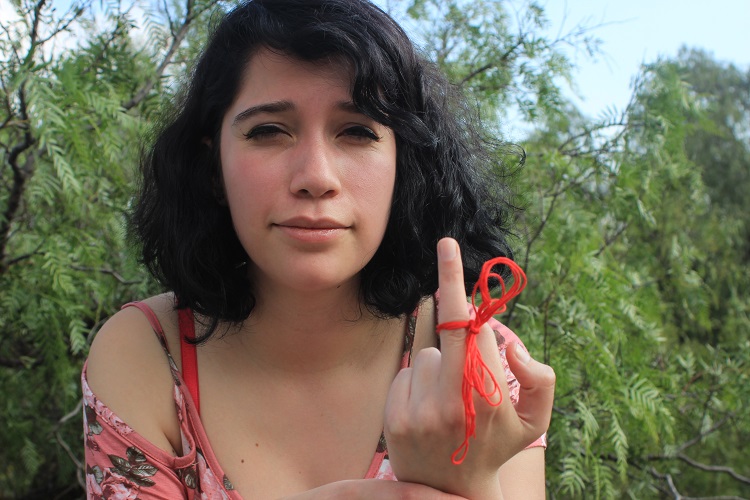Louisiana has been grappling with a serious public health challenge for years, sexually transmitted diseases (STDs). Reports from national health surveys consistently show that the state ranks among the worst in the United States when it comes to STD infection rates. This issue is not just about numbers; it is about people, families, and communities whose lives are affected by preventable diseases. The Louisiana STD Crisis has reached a level where awareness, education, and open conversations are no longer optional but necessary.
What makes this problem urgent is the fact that Louisiana has some of the highest rates of syphilis, gonorrhea, and chlamydia in the country. These infections can lead to serious health complications if left untreated, including infertility, long-term pain, and even life-threatening conditions. By humanising this content, we aim to shine light on the real stories behind the statistics, while also offering hope and practical steps for prevention and support.
Louisiana Ranks Among the Worst in STD Rates
Louisiana consistently appears in national reports as one of the top three states with the highest STD rates. The question many ask is: why does this state, rich in culture and history, struggle so much with sexual health? The answer is complex and deeply tied to social, economic, and cultural factors.
One major issue is poverty. Louisiana has one of the highest poverty rates in the U.S., and research shows that people in economically disadvantaged communities often have limited access to healthcare. When clinics are far away, insurance coverage is low, and healthcare costs are high, many individuals avoid testing or treatment until it is too late. The result is a cycle where infections spread unchecked, reinforcing the state’s reputation for high STD rates.
The Role of Education and Awareness in the STD Crisis
A key reason behind the Louisiana STD crisis is inadequate sexual health education. Many schools either provide limited sex education or avoid the topic altogether. When young people are not properly informed about safe sex practices, the importance of testing, or how infections spread, they are at greater risk of contracting and transmitting STDs.
On top of this, the stigma surrounding conversations about sexual health often prevents people from help. In a conservative state like Louisiana, where religious and cultural values influence everyday life, discussions about sexual activity can feel uncomfortable or even taboo. This silence allows infections to spread in the shadows, making it harder for public health officials to fight the epidemic.
How Poverty and Inequality Fuel the STD Epidemic
Poverty is not just about income—it affects housing, transportation, education, and healthcare access. In Louisiana, entire communities struggle with these challenges. People living in rural areas may not have easy access to clinics, and even when they do, lack of transportation can make regular check-ups nearly impossible.
Moreover, systemic inequality means that minority communities, particularly African American populations in Louisiana, face disproportionately high rates of STDs. These communities often experience structural barriers in healthcare, from fewer local health providers to a lack of culturally sensitive care. The combination of poverty and inequality makes it nearly impossible to break the cycle of infection without major policy interventions.
Healthcare Access: A Critical Factor in Louisiana’s STD Problem
Access to affordable healthcare is one of the most pressing issues driving the Louisiana STD crisis. Many residents are uninsured or underinsured, which discourages them from medical care until symptoms become severe. Unfortunately, some STDs can remain asymptomatic for months or years, silently causing damage while spreading to others.
Community health centers do exist in Louisiana, but many are overwhelmed or underfunded. Patients may face long waiting times or limited hours of operation. In some rural parishes, there may not even be a sexual health clinic nearby, forcing residents to travel miles for testing or treatment. This gap in services directly fuels Louisiana’s ranking among the worst states for STD infections.
Cultural Stigma and Silence Around Sexual Health
In many Louisiana communities, sexual health is a topic often avoided in conversation. Religious influence and traditional values play a strong role in shaping cultural norms, and as a result, topics like condom use, birth control, and testing are rarely discussed openly. While values and traditions are important, the silence around sexual health can have devastating effects.
People who feel ashamed or judged are less likely to testing or admit to risky sexual behavior. This stigma can lead to untreated infections and further spread of disease. Addressing the Louisiana STD crisis requires not just medical intervention but also cultural shifts that encourage open, non-judgmental dialogue about sexual health.
The Impact on Young People in Louisiana
Young people are among the most vulnerable groups when it comes to STDs in Louisiana. Studies show that individuals aged 15 to 24 account for nearly half of all new STD infections in the state. With inadequate sexual education in schools and a lack of accessible clinics, teenagers and young adults often do not receive the resources they need to protect themselves.
This generation also faces the pressures of social media, peer influence, and misinformation. Without accurate knowledge, many young Louisianans rely on myths or unreliable sources for sexual health information. This highlights the urgent need for comprehensive, evidence-based sexual education programs in Louisiana’s schools and communities.
Women and the Louisiana STD Crisis
The STD epidemic has a particularly harsh impact on women in Louisiana. Conditions like chlamydia and gonorrhea can lead to pelvic inflammatory disease (PID) if untreated, which may cause infertility or ectopic pregnancies. Pregnant women with untreated STDs face additional risks, including passing infections to their babies during childbirth.
Unfortunately, many women do not have regular access to gynecological care. In rural parishes, OB/GYN services may be scarce or nonexistent. This makes preventive care, routine check-ups, and early treatment difficult, worsening the impact of the crisis on women’s health. Addressing these disparities is essential if Louisiana is to reduce its ranking among the worst states for STDs.
Government and Public Health Response in Louisiana
The state of Louisiana has made efforts to address the STD crisis through public health campaigns and free testing programs. Local health departments often organize awareness drives, mobile clinics, and educational events to reach underserved communities. However, funding limitations and the sheer scale of the problem make it difficult to meet the demand.
Partnerships with non-profits and community organizations have been essential in bridging the gap. Groups focused on HIV prevention, LGBTQ+ health, and minority health services are playing a vital role in providing resources and breaking down stigma. Still, without consistent statewide investment, these efforts cannot fully counteract the state’s alarming STD statistics.
Humanising the Louisiana STD Crisis: Real Stories Behind the Numbers
It is easy to get lost in the statistics, but behind every number is a person with a story. A young woman in Baton Rouge may face infertility because she could not afford treatment for chlamydia. A teenager in New Orleans may suffer stigma from peers after being diagnosed with gonorrhea. A mother in Shreveport may unknowingly pass syphilis to her newborn child because she was never tested during pregnancy.
These stories highlight why it is so important to humanise the Louisiana STD crisis. By seeing people, not just numbers, we can better understand the urgency of improving sexual health awareness, education, and access to care. This perspective not only reduces stigma but also motivates policymakers and communities to take action.
What Can Be Done: Solutions to Improve Sexual Health in Louisiana
While the situation in Louisiana is dire, it is not hopeless. There are several steps that can help reduce the spread of STDs and improve the state’s ranking. First, comprehensive sex education in schools is essential. Young people deserve accurate, science-based information that equips them to make informed choices about their health.
Second, expanding access to healthcare through affordable clinics, mobile testing units, and telemedicine can help reach underserved populations. Public health campaigns that normalize testing and promote condom use are also effective. Most importantly, reducing stigma and encouraging open conversations about sexual health can change community attitudes and save lives.
The Way Forward: Breaking the Cycle of Louisiana’s STD Crisis
Breaking the cycle requires a united effort from government agencies, schools, healthcare providers, and community leaders. Louisiana cannot continue to rank among the worst in STD infections if meaningful change is to happen. By investing in education, expanding healthcare access, and creating safe spaces for honest discussions, the state can reverse its troubling statistics.
The Louisiana STD crisis is more than just a public health issue—it is a social and cultural challenge. But with commitment and compassion, it is possible to build a healthier future. Every step taken, whether through education, testing, or conversation, brings Louisiana closer to breaking free from the stigma and statistics that currently define it.
Conclusion: Hope for a Healthier Louisiana
Louisiana’s Struggle With STDs is serious, but it is not beyond repair. Acknowledging the issue is the first step, and humanising the discussion helps us see why change matters. From young people who need education to women who require better healthcare access, every individual deserves the opportunity to live a healthy life free from preventable diseases.
The road ahead is challenging, but not impossible. By addressing poverty, improving healthcare, and reducing stigma, Louisiana can transform its reputation from being one of the worst states for STDs to one that leads with compassion, awareness, and effective public health strategies. The time to act is now, before another generation is impacted by this preventable crisis.




